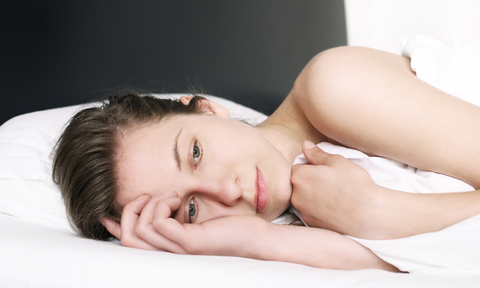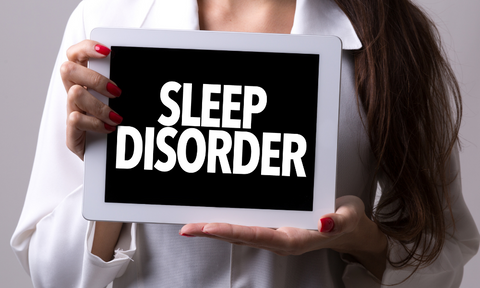Share
Many of us have experienced sleep problems and though this may be considered normal ‘sometimes’ and temporary due to certain factors such as stress. If sleep problems occur on a regular basis and is becoming part of your regular routine, then you may suffering from a sleep disorder. When a person is sleep deprived, it can have a negative impact on your overall body functions and that includes your energy and emotional health.
A good night’s rest is vital to your health (and happiness) and minimal sleep loss can ruin your ability to handle stress, can affect your mood and energy. When you ignore sleep problems and disorders, these may lead to weight gain, relationship strain with your loved ones, poor health and ineffective job performance.

Learn what the symptoms of sleep disorders are and how you can help yourself and prepare the next time it strikes again. Talk to a sleep specialist to help you out on how you can best improve your sleep at night.
Signs and Symptoms
How can you tell if you have a sleep disorder? Check to see if you are experiencing any of the following symptoms below:
- Sleepy during the day
- Irritable or moody
- Falling asleep while driving, watching TV, reading a book or sitting still
- Low energy during day time
- Poor concentration
- Reacts slowly when being asked or told to do something
- Have trouble controlling emotions
- Needing caffeine to keep you energised
- Needs to take a nap almost everyday
A sleep disorder is no joke and must therefore be given attention right away. If you answered mostly “yes” to the questions, then you just may be suffering from a sleep disorder.

Common Sleep Disorders
(note: some of these things are not sleep disorders as such but problems that can cause sleep issues)
Insomnia
Insomnia is difficulty of falling and/or staying asleep. This can be caused by internal factors such as stress and anxiety and external factors such as temperature, noise and light. When this type of sleep disorder becomes chronic, it’s time to see a sleep specialist and get some help.
Sleep Apnea
Sleep apnea is a common sleep disorder that temporarily stops breathing during sleep due to upper airways blockage. There is an interruption in your breathing while you are asleep and can lead to many awakenings every hour. People experiencing this disorder may not remember how many times they have awakened but they usually feel exhausted, sad, forgetful, moody and unproductive during the day.
Narcolepsy
Narcolepsy is the ability of a person to fall asleep for multiple times throughout the day even during a normal activity caused by a dysfunction of the brain mechanism that controls sleeping and waking. This sleep disorder may also affect your sleep throughout the night waking you up unexpectedly.
Menopause
When women hit the menopausal age, they will start to experience lesser sleep. A report according to a 2007 National sleep Foundation poll, women between the ages 45 and 51 have difficulty going to sleep and staying asleep.
Jet Lag
Jet lag is a sleep disorder for people who fly across multiple timezones and can affect the circadian rhythm temporarily. Symptoms may include sleepiness, fatigue during daytime, headache, stomach problems and insomnia. This typically occurs within a day or two after flying.
Restless Legs
This condition may let you feel a creepy-crawly sensation that runs up and down your legs. You may feel pins and needles, jerks, quivers, numbness, pain and burning sensation that causes you to move your legs uncontrollably. Restless legs can be a cause for sleeping problems because it can get worse during night time.

How to Improve Sleep Quality
Consistent routine and good sleep habits will help you recover from the battle of “no sleep”. Eventually, you will be able to address this concern through lifestyle changes, healthy diet and handling stress effectively.
Here are ways to help you start a bedtime routine to improve the quality of your sleep and daytime effectivity:
- Regular Sleep Schedule: Go to bed at night and wake up the same time each day.
- Enough Time for Sleep: Sleep for at least seven to eight hours every night to increase your productivity and energy.
- Dark, Cool and Quiet Room: A dark, cool and quiet room can help you have undisturbed sleep at night.
- Keep Gadgets Away: Take an hour or two to free yourself from gadgets, the lights on the screen can stimulate your brain, suppress the production of melatonin and interfere with your body clock.
- Sleep Diary: Most people with sleep disorder keep a sleep diary to monitor and identify sleep patterns proven helpful if you’re planning to see a sleep specialist.
- Incorporate Perfect Magnesium and Perfect Hydrolyzed collagen into your daily routine (twice daily) - one scoop of each, once through the day and then again at night in a glass of milk or water or herbal tea? These products combined, may help many of the issues mentioned above.
I hope you enjoyed today's blog and it added some kind of value to your life. If you found it useful, we'd appreciate it that you could please share it with those you know. Knowledge is power and we all have the ability to effect change.
Together we can get Australians healthier. 😊
Tam x





